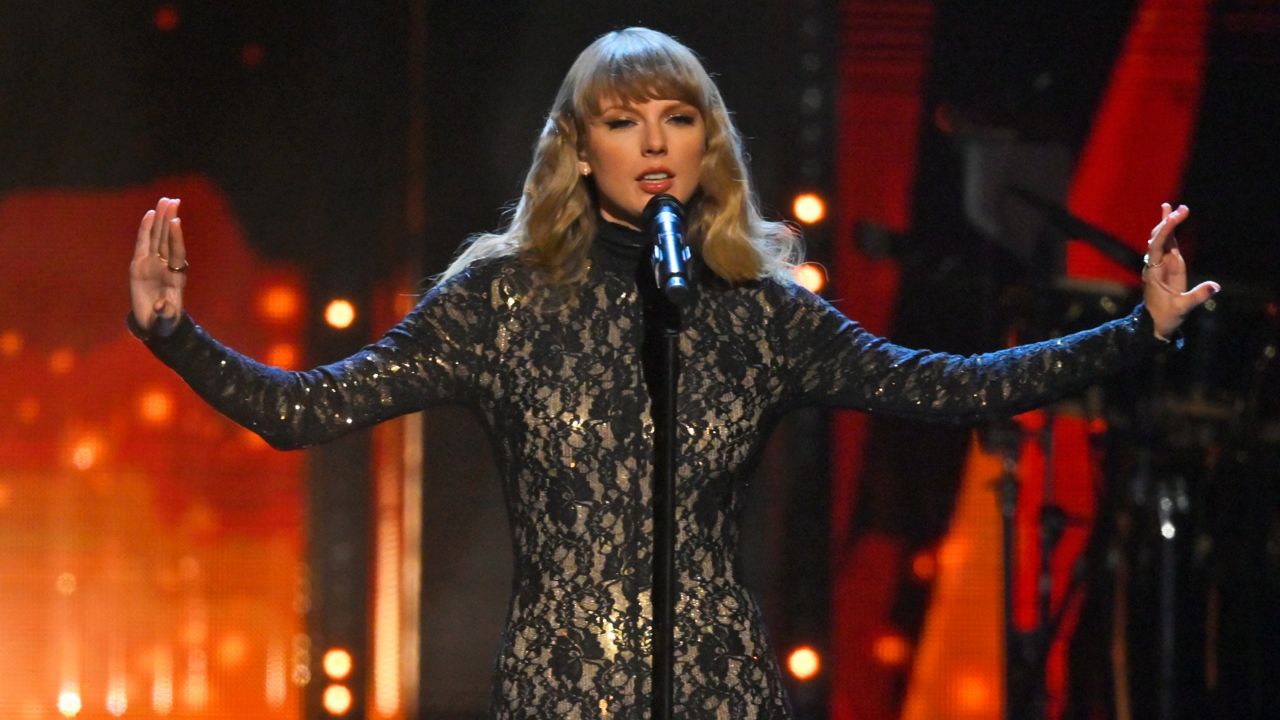More than two dozen Taylor Swift fans aren’t shaking off the Ticketmaster fiasco that left them and millions of other Swifties without tickets to the pop superstar’s Eras Tour.
What You Need To Know
- Twenty-six Taylor Swift fans filed a lawsuit Friday in Los Angeles accusing Ticketmaster and its parent company, Live Nation Entertainment, of antitrust violations, fraud, misrepresentation, breach of contract and other offenses
- Ticketmaster has faced intense criticism from fans of the “Anti-Hero” singer as well as lawmakers in Washington over its handling of ticketing to Swift’s 52-show U.S. tour next year
- The company experienced website problems that it blamed on unprecedented demand, resulting in many waiting several hours for tickets or not getting tickets at all
- The plaintiffs argue that because Ticketmaster has exclusive agreements with stadiums in every city Swift’s tour is visiting, the pop superstar had no choice but to work with Ticketmaster and pad their profits through its resale exchange
Twenty-six fans filed a lawsuit Friday in Los Angeles accusing Ticketmaster and its parent company, Live Nation Entertainment, of antitrust violations, fraud, misrepresentation, breach of contract and other offenses.
Ticketmaster has faced intense criticism from fans of the “Anti-Hero” singer as well as lawmakers in Washington over its handling of ticketing to Swift’s 52-show U.S. tour next year. The company experienced website problems that it blamed on unprecedented demand.
For general presale tickets, Ticketmaster required people to preregister as “Verified Fans,” a tactic aimed at preventing scalper bots from snatching up tickets. Of the 3.5 million who registered, around 1.5 million were sent codes that made them eligible for, but did not guarantee them, tickets.
Ticketmaster, however, said a “staggering” number of bot attacks as well as fans without codes flooded its website. Those with codes reported having to wait several hours for tickets or not getting tickets at all.
“Millions of ‘verified’ fans that had received codes were unable to purchase tickets,” the lawsuit says. “This was the result of the excessive distribution of codes and the addition of 14 million non-verified Ticketmaster users that were allowed access to the TaylorSwiftTix presale.”
Ticketmaster then canceled the general sale of tickets a few days later due to “extraordinarily high demands on ticketing systems and insufficient remaining ticket inventory to meet that demand,” it said.
In their lawsuit, the plaintiffs say, “Ticketmaster is a monopoly that is only interested in taking every dollar it can for a captive public.”
The Swift fans say Ticketmaster and Live Nation violated California’s antitrust Cartwright Act and the state’s Unfair Competition Law.
The plaintiffs argue that because Ticketmaster has exclusive agreements with stadiums in every city Swift’s tour is visiting, the pop superstar had no choice but to work with Ticketmaster. “And because artists like Taylor Swift have to go through Ticketmaster, their fans do as well,” the lawsuit says.
Not only does Ticketmaster rake in fees on the initial sale of tickets, it pads its profits its resale exchange, where buyers pay additional fees, the lawsuit says.
The plaintiffs allege that Ticketmaster “intentionally and purposefully mislead [sic] ticket purchasers by allowing scalpers and bots access to TaylorSwiftTix presale.”
Ticketmaster also “intentionally and knowingly scheduled a general sale of tickets knowing they would not have the quantity necessary to facilitate the sale,” the lawsuit claims.
The plaintiffs are seeking $2,500 for each violation, which could add up.
The plaintiffs are from 13 different states, including California, Massachusetts, North Carolina, Ohio and Texas. Jennifer Kinder, one of the plaintiffs’ attorneys, told The Washington Post about 150 more fans have expressed interest in joining the suit.
“They messed with the wrong fan base,” she said.
Ticketmaster and Live Nation did not respond Monday to emails seeking comment on the lawsuit.
In a post on its website shortly after the debacle, Ticketmaster apologized to Swift and her fans, “especially those who had a terrible experience trying to purchase tickets.”
“The biggest venues and artists turn to us because we have the leading ticketing technology in the world – that doesn’t mean it’s perfect, and clearly for Taylor Swift | The Eras Tour onsale it wasn’t,” Ticketmaster said. “But we’re always working to improve the ticket buying experience.”
Live Nation said in a statement last month it “takes its responsibilities under the antitrust laws seriously and does not engage in behaviors that could justify antitrust litigation.”
It attributed Ticketmaster’s dominance in the market to “the large gap that exists between the quality of the Ticketmaster system and the next best primary ticketing system,” but added the “market is increasingly competitive nonetheless, with rivals making aggressive offers to venues.”
In a statement posted on Instagram last month, Swift expressed her frustration with Ticketmaster.
“There are a multitude of reasons why people had such a hard time trying to get tickets and I'm trying to figure out how this situation can be improved moving forward,” she wrote. “I'm not going to make excuses for anyone because we asked them multiple times if they could handle this kind of demand and we were assured they could. It's truly amazing that 2.4 million people got tickets, but it really pisses me off that a lot of them feel like they went through several bear attacks to get them.”
Ticketmaster and Live Nation are facing greater government scrutiny in the wake of the Swift incident.
U.S. Rep. Alexandria Ocasio-Cortez, D-N.Y., tweeted that the 2010 Live Nation-Ticketmaster merger should have never been approved at that they should be broken up.
The New York Times reported that the Justice Department has opened an antitrust investigation into Live Nation.
And attorneys general in Nevada, Pennsylvania and Tennessee have launched inquiries into the Swift ticketing breakdown.



